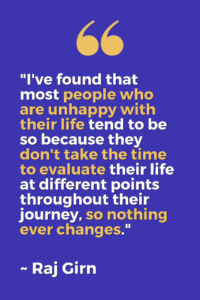Raj Girn: This week’s theme is Media & Communications and here’s what I want to do. I want a deep dive into how to host events to create authority for your brand. Now, ordinarily, a discussion on events I would always do under the Branding & Marketing themed shows. But since the focus today is really creating authority in this space, I decided to move this into the Media & Communications themed show.
So with that said, I’d like to really take a moment to welcome my fabulous guest today who is going to help deep dive into some of these things that I really feel that you need to know about what’s happening as the opportunity for events today, for you to grow your brand and for you to be able to really dial in your business. Her name is Jennifer Rabanillo and she is a veteran event producer and the founder of Styleworthy.
Here is Part One of our conversation:

Raj Girn: Jen, welcome to the show. I’m super happy to bring you on to finally talk about events.
Jennifer Rabanillo: Thank you very much. Thank you for having me and for wanting to share my experience with your platform.
Absolutely, Jen. So I want to start our discussion by sharing a bit about your professional journey just so that we can bring everyone into the mix on all the wonderful things that you’ve done out there and why I feel that you’re the perfect person to have this discussion with. You’ve been in the event space for almost two decades. Can you share the capacity in which you’ve participated so we can tackle that piece first?
Absolutely. So as Raj mentioned, I have been in the event production industry for almost 20 years, and that didn’t happen overnight. So my skill set is actually in business marketing. So I took that and worked in advertising on the client relations side. And then from there, I got a wonderful job offer at Much Music within the television building itself. So when I was brought on, it was actually distribution and acquisitions for feature films, television series and our in-house shows that we had. So within that, I had the opportunity to learn more about events because as we acquire and distribute, we had to plan events. Not only in Toronto, but around the world for individuals to come and purchase from us or to learn about the distribution. So that’s how it started.

Credit: IN@style_worthy
But that’s not how I thought it would go. So outside of the work situation where I started to do more marketing and events on the other side, I actually wanted to own my own business within the action sports industry. So not only am I doing events for work, I’m doing my own events that are based on sporting events or sporting events here in Montreal and then Vancouver on top of my full-time job and then on top of that, doing 10,000-person events that focused on music and entertainment. That was all in my 20s. But I just wanted to open my own shop, but it just fell into my lap and then I realized that it’s literally in my blood. It’s a passion and then it has evolved me into where I am now. So you might wonder what are the job titles or the positions that lead to being an event producer? So event coordinator, event design and decor, event planning, management and producer, which are all kind of same, same, but different.
Absolutely. And we’re going to walk through some of this vast array of experiences that you’ve had as we kind of journey everyone through the opportunity of what the whole event space is today. But before we do that, let’s tap also into some of the industries that you’ve worked in Japan, because that’s also been pretty varied. You’ve touched upon some of them. But let’s just kind of regroup a little bit for people who are just joining us.
Absolutely. So some of the industries that I have been involved in the planning vary so it can go from entertainment, which is music, fashion, television to tech, which would be things like launching apps, launching products for HP Canada, Microsoft’s Xbox, Future Shop at the time, all the way to finance, which was doing cross-country tours for TD Bank, RBC. And then on top of that, I guess that encompasses the three big industries that we have here in Ontario, working for tourism. So I actively work for or provide my services to tourism groups to help them as well, bring more insight onto the event spaces that they have within their areas.
So, guys, you’ve heard it right here. You know now why I felt that broaching this topic, especially since we’re transferring from lockdown into active event spaces and also the whole opportunity of the online virtual event arena as well. You can see why Jen was the person that I felt was the perfect person to really kind of tap into this because she has a wealth of diverse experience and has worked in multiple industries with many different types of brands.
So, Jen, I want to kind of go in a certain direction first before we dive into what the opportunity is for events for all of those people out there who really have maybe hosted their own event and don’t really know what that kind of value proposition could look like. So before we dive into what the current event climate is and how to navigate through it, I want to bring those watching, listening and reading this who haven’t yet hosted an event for their business or for their brand, some standard benchmarks that need to be in place for an event to be set up for success.
So, as you know, Jen, I’m a long-time executive producer myself. You know, because you’ve been involved in a lot of the events that I’ve done, from fashion to music to film to mentoring events and also all the way up to our annual awards show that we’ve been doing for ANOKHI for over a decade. So I’ve learned during that time, and you know me, I’m very A-type, I like to kind of have everything in systems because I feel that if you have things in systems, anyone can kind of be plugged into the system to take over and to be kind of trained to do the job. Three steps that I feel are kind of the tranches of being able to really organize what an event should be about is to understand what the preplanning stage is, what the onsite execution stage is, and what the post-event follow up stage is. So let’s break these down. Jen, as an event producer, when someone brings you on to handle their event, what should be done in each of these tranches to ensure that the overall event is set up for success?
“Three steps that I feel are kind of the tranches of being able to really organize what an event should be about is to understand what the preplanning stage is, what the onsite execution stage is, and what the post event follow up stage is.” ~Raj Girn
So for the three steps that you just mentioned, the pre-planning execution and also the post. So I would say about 75 per cent of your event is in preplanning. So without a plan, there’s no reason to execute. But with a solid plan, then you have every reason to execute. So that’s how I put my energy into it. And I’m sure you’ll agree that it takes months, it could take years to plan a solid event based on the audience that you want. It really depends on the industry, the product or the brand that you want to share with your end-users. Execution is easy because when it comes to the week before execution when you have your work schedule on your run of the show, it’s really just onsite. So the event planner and the event host with a really good team should really just be mingling and extending their brand in-person to the attendees who come.
I love that. I have to kind of just interject here for a moment. I love how you say that’s the easy stage, the execution stage because that’s the point where people kind of get scared and apprehensive that will it all work on the day of the event. Now, you have done multiple events and you’ve said this, especially at my events, and you know how intricate my award shows have been. You always waltz into our events on the day of the event or the day before or the day after, because we generally have our events going on for a couple of days, completely stress-free. I’ve always wanted to ask you, with all the moving parts that you’re having to manage, how do you keep your mindset so kind of relaxed and in the now and present moment, which I feel is kind of the magic formula to why you’re always able to execute well when needed?
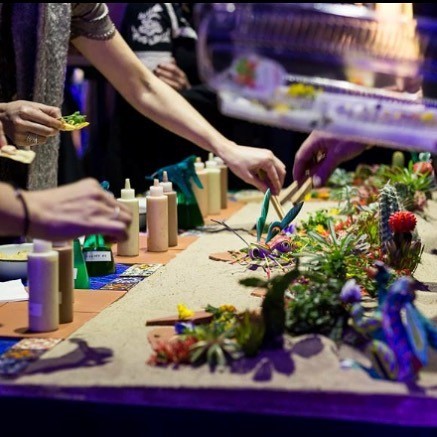
You know, that’s a valid question. Keeping calm when there are so many different moving parts is a skill, but it’s almost something that you’re born with. Not everyone can do what we do because the stress is so high. If you look at the top 10 stressful jobs, the event planner is actually in the top five. And it sounds ridiculous because we’re in the same rooms as emergency services. When you have trust or you put trust into the client’s vision and the client trusts you, pre, pre, pre is really what’s going to take that stress level down. And when you have a plan A, B and C put in order and you have your team that you have trained and who understands the client, understands the venue, understands the attendees, then everything should go okay. Now I say this, that’s easy because I’ve been doing it for 20 years. But if you’re going to do it and you’re starting out, start small. You have 1,000-person events, start smaller and see how you react to the pressures that you’re put under when it comes to an event.
“If you’re going to do it and you’re starting out, start small. You have 1,000-person events, start smaller and see how you react to the pressures that you’re put under when it comes to an event.” ~Jennifer Rabanillo
I love that advice. So there’s the third phase. Let’s kind of hone in on that, because that’s the post-event follow-up phase I feel is the one that people who aren’t as successful in. The formula of creating and executing successful events tends to not focus so much on. But from my experience, it is the key factor of why you’re even doing the event is the follow-up and what you’re looking to accomplish from even having done that event. Give me your thoughts on the post-event follow-up stage.
So the post is very important, but I’m going to go back to pre because it’s going to take 75 per cent of your time. What is the reason you’re having these events? What is your goal? Who are you targeting in terms of your audience? What venue is it going to be at and what is your timeline? So when you have all of these in order, then your execution should be good and then your post, you have a reason why you’re doing this. So if it’s to celebrate, to launch, to educate, then those are the reasons why you’re doing that. So when we can get into this later on, however, the post is the follow-up, but also during the event, that’s also your post, because your attendees are there, you can engage them to use that crowd, source them to take photos, to use the hashtag so it’s live so that individuals that might not have been available to come to the event will know about the event while it’s happening.
And then that’s the call to action after for post. So, again, it all depends. So if it’s a celebration like a gala to celebrate all the amazing accomplishments, then when you sign up or when you get individuals to sign up, they will provide their email address, always ask for something to do, a call to action. And as the event happens, you can actually do a survey while they’re there. And this could be a photo booth. It’s simple. Is that a photo booth taking their picture, getting their email address again that they can share directly the social media, those emails you can email afterwards to say we would love to see the other photos you’ve done. Here is a survey asking all the questions that can provide you with research for a brand launch that can provide you more scope of the individuals that want to come to a celebration and also to provide sales leads.
And this is the big thing here, right Jen, some of my clients will come to me and say events isn’t really my thing. And I say, well if marketing your business, marketing your brand, creating more deeper relationships with your consumer and your client base isn’t a part of your plan, then not doing events makes sense. But if it is a part of your plan, somewhere in your ecosystem and in your marketing and your media strategy, you got to think about the event scenario. A lot of what you just shared Jen is extremely important for people to understand, is needed to make sure that you create authority and that you are staying relevant. And that’s the big thing about events that I think is unique to the entire event model, and that is the fact that other people get excited about the experience of what is taking place and what the objective is of what’s going on. And they share it all over the place. And that’s the magic. You are kind of partnering up with all levels of attendees to get the word out there about why your event was important, what they got out of it and what the value proposition is. And I think that these are the things that really do change the game in your business if you’re looking at amplifying your authority.
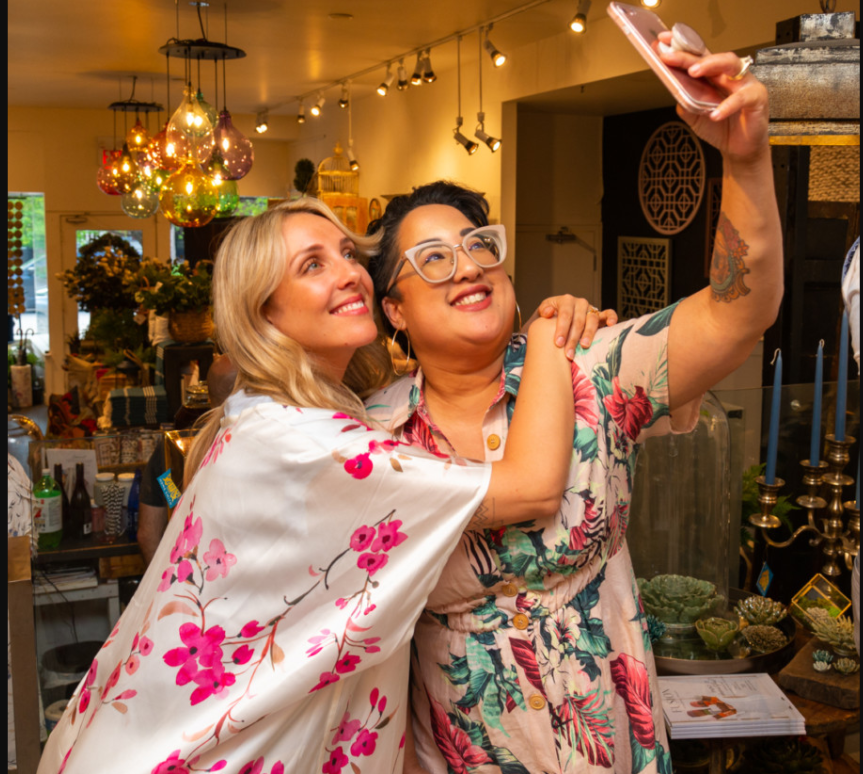
So I want to ask you this, Jen. Can you share how the following types of events differ in criteria? So depending on the industry a person is in, they can hone in on what’s best for the type of event that they need to host? First of all, let’s tackle the profit vs. not-for-profit. What do people need to know of the differences in doing an event like these two?
When it comes to nonprofit events and for-profit events, there’s a huge difference. So for-profit events can be, I’m going to focus on the entertainment industry, a concert you want to throw, an event to sell something so individuals will come. Let’s say they’ll pay a fee to go in, to get admitted in and they shop and then they leave. Nonprofit is a very skilled type of thing. So it’s education and awareness. So for nonprofit organizations, they’re not there to make money. So, for instance, they may have received a grant. And now you want to host non-profit events that reach your community to educate them about something. Or to fundraise right here, fundraising for an association or for your nonprofit association, but that is ultimately to help a cause.
So a good example of that would be like for cancer or sick kids. So that’s a nonprofit where you are not making money on your event. However, you have received a grant which can sustain a certain level of payment for yourself to be able to execute and plan the event. For-profit would be, let’s say entertainment, we were talking about a film festival. So a for-profit event where we’re going to have an event at a venue, where we are going to charge hundreds of dollars for the experience and then for individuals who want to walk through the door, they are going to be charged a door fee. So that is for-profit to provide an experience during film festival for attendees who want to be a part of that energy.
Right. So you just mentioned ticketed events. Let’s go there next. Ticketed versus free entry. What do people need to know?
So ticketed versus free. The marketer in me is always like, make it free so that they spend the money while they’re in your event. So it depends on what you want to do again. So I’m going to use the example, if it’s a big show where consumers want to come in and they want to buy things, well, you want to provide perhaps a free ticket just so that they come in and they help all the other vendors to buy things. Now, if you want to ensure a type of exclusivity or provide more of an experience, that’s a ticketed experience where you are guaranteed that you are going to bring in that profit to perhaps pay for the venue, you pay for all of the expenses of that event and then make a profit. So that, again, could be the Christmas Market, absolutely a fee to come in.
Absolutely, and that’s the thing that as a brand or as a business, looking at what the end goal of the event is, I feel also will help you determine whether you want to make this a free event, because the focus is to bring in, as Jen rightfully said, bring in people that will actually purchase during the event or whether the value proposition to the consumer is to get educational knowledge that in an environment like that, then you would want a ticket that event. So, I think there are so many other interchangeable ways of looking at that because we’re looking at this more from like black and white. If it’s free, you’re encouraging people to come to the event. That’s the first thing and to also purchase at the event.
“As a brand or as a business looking at what the end goal of the event is, also will help you determine whether you want to make this a free event, because the focus is to bring in people that will actually purchase during the event” ~Raj Girn
But free entry also kind of has a negative to it because there’s this feeling that maybe it’s not really a worthy experience. Ticketed events, people know people mean business, people are coming there because they seriously want to partake in whatever the exchange is that’s happening during the event. And this is why mastermind’s coaching, business seminars etcetera tend to be more ticketed. But even those, you’ve been to many, so have I, a lot of those are also free entry because the end goal of the host is for you to tap in and purchase their products or services while you’re there, right Jen?
Yes, absolutely. So it’s all in your demographics and the economic circumstance that you are targeting. And that’s, again, the marketing background of what is going to have an effect. You see these speakers like Tony Robbins and they charge $2,000 but that means you’re accountable to show up to their event. And that’s a certain mindset. An individual who knows they’re going to invest in this event because they want to learn something and take away. And then you have the free where you just want the numbers to come. But you don’t really know what their dedication or their reason of being at the event is. So it is really black and white, but there’s a lot of gray area in between.
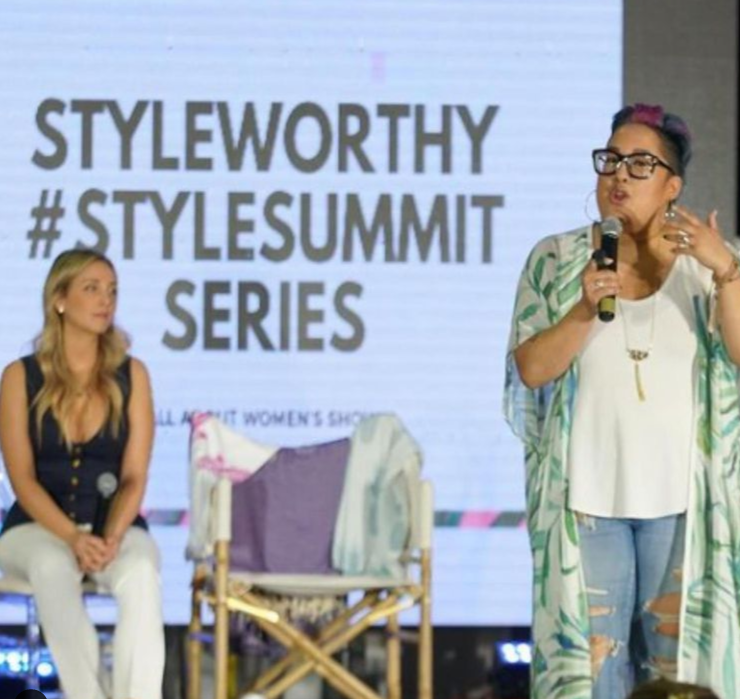
Absolutely. And you just put something to my mind as well. This is where kind of brand equity really comes into play big time, because, as you mentioned, someone like Tony Robbins can charge a premium price for you to enter the event and then also upsell you on multiple other opportunities, which generally tends to be kind of the formula of those types of events where he brings in experts that have certain wares, services, products that they want to sell to the consumer through educating people on why it’s important for their professional development. And then someone like Tony Robbins or his company would take a cut of everything that sold off of his platform.
So there are multiple ways to look at the ticketing scenario. And even if you’re an unknown company or a brand that’s just starting off, you have to really think about where is it that you want your events to go to is where you should start off, where the ticket versus free entry is concerned. And why I say this is the goal here for you to bring in people that are seriously going to want to be a part of what it is that the value proposition is for this event? Or are they not? And does that matter to you or not? So a lot of these different things are worth considering when you’re looking at this.
But the rule of thumb is, is that if you ticket an event, all of a sudden you are kind of telling people that this is going to be a very high-value opportunity. When it’s a free entry event, generally, you know that there’s going to be something that you have to purchase when you get there as an attendee. So I want to ask you this then again, because this also is another layer to the ticketing versus know free entry scenario, and that is public versus by invite-only attendance events. Can you kind of add that layer to the mix next?
“If you ticket an event, all of a sudden you are telling people that this is going to be a very high value opportunity. When it’s a free entry event, generally, you know that there’s going to be something that you have to purchase when you get there as an attendee.” ~Raj Girn
I am going to add that layer. So by adding public versus more exclusive. So I’m going to go to the ticketed event side first where it could be more private. And this is where you have the different scales of ticketing so you can have an early bird with a bundle. So, for instance, if it is a master, what you want individuals to continue to come, you do a bundle or you do a VIP or you do a general entry, so those are normally the four tiers of tickets when you’re going to go to a paid event and each level of the ticket will get a different brand experience throughout, but they all encompass to provide the same type of information or lessons learned from the event.
So let’s say, for instance, when there’s a mastermind, when you do VIP they’re at the front, they get to meet with Raj. They get a lovely little packet, or maybe guided something so that they have a takeaway that will then in turn a lead and sales generation for these individuals to sign up for your expertise. So that’s like an early bird VIP and then General would be for the public. So these are individuals who okay, we’ve heard about it. We want to learn more. We’re going to spark some interest, We’re going to be here and we’re going to sit maybe seven rows back. But then that’s how the individual who’s hosting the event or the brand is going to reel them in to then become the individuals who are going to turn into more of an interest and they become the VIP in the long run. That’s your goal. That’s why you’re attending people. So that’s ticketed.
And that’s my interpretation of tickets with different tiers for the event. Now free. I’m going to think of an example where there’s something that’s free and that’s more public. So let’s say there’s a power launch. So there’s a car launch of a luxury vehicle brand, which I’ve done. You attended. So it’s a free event. But who are the people that you’re inviting? Well, it could be public and it could be private. So, for instance, if it’s a luxury brand such as Mercedes Benz, you would like to invite individuals who have purchased from you and you would like them to continue purchasing or leasing from you. Now, you can allocate 20 percent of tickets to the public. And these are for individuals that your 80 percent invite. So those could be individuals who have not yet owned the luxury vehicle that you’re going to convert because you are providing a free event, a luxury experience that will reel them in.
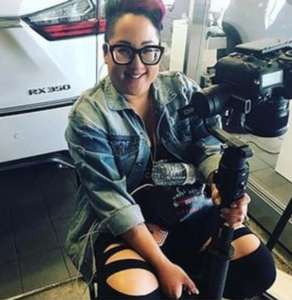
Absolutely. So for people who aren’t really kind of really honed in on where you would have a public attendance versus an invite-only attendance, can you summarize that for us? Again, the public versus the invite-only because this is where it gets complicated, folks. So you’ve got ticketed versus free entry, then who are you giving the ticketed versus the free entry to? Is it public or is it going to be by invite only? Because when you think about invite-only, oftentimes you think, oh, I’m being invited as a guest.
But you could be invited into a very exclusive event experience. So only those people that are being reached out to are being invited. But you’re being invited at a premium cost still. It can still be a purchased event. So there’s so many different kinds of gray areas in the black and white of a lot of these things that we’re talking about. And again, it comes back to what your end goal is that you want to accomplish in the long run with this event. Jen, you want to talk a little bit and add to maybe the invite on the attendance part of things as well from your experience.
Yes. And, you know, if anyone ever wants to find out more and just reach out to Raj, because that’s what she does and you can reach out to me because it really is your goal. So we’re going to start with why you got invited. There’s a PR side to these events as well. So if you are an exclusive or VIP individual who gets an invite-only to an event, that is because your name is on a list that either the PR rep has or the corporation wants you to be there. Invite only which can be free. Then there’s invite-only, which can be at an exclusive price to you because there is a lot of added value to the event but the individuals who are hosting would like you to be there or to extend the invitation.
Right. Absolutely.
So now there’s free to a free event. So that means tickets can be found on many different platforms. So you’re trying to reach more. You’re trying to grow your brand. An example would be a festival. You want to reach your brand. You have sponsors who want to be seen by the general public. So that is a free ticket you can find on many different platforms, such as Eventbrite or the company’s social media or website, where they offer a certain block of tickets that are free to the free event.
Then there is free to a paid event if I’m going to say this correctly. So you could be offered a free ticket to an event that there is usually you have to pay at the door. So there could be a certain block of tickets that would encourage individuals to sign up faster and tell others, but if you have a certain block of tickets that sell out, then those others are converted into purchased tickets. It sounds simple but it’s kind of complicated and it’s all based on what you want.
Absolutely. And oftentimes these tiers are very strategically created where the free is supposed to help people really talk about the event and to be able to maybe perhaps bring in people who are outside of your ecosystem and the people who are being invited are already in your ecosystem. So there’s also another strategy of why a certain block of tickets that tend to open up because they want to bring in new people. So, Jen, one other thing before we move into what events are about today, I want to ask you this: Is there anything people need to know about B2B versus B2C event opportunities? Is there anything people need to know there?
“Oftentimes these tiers are very strategically created where the free is supposed to help people really talk about the event and to be able to bring in people who are outside of your ecosystem and the people who are being invited are already in your ecosystem. So there’s also another strategy of why a certain block of tickets that tend to open up because they want to bring in new people.” ~Raj Girn
Yes, this is actually really important as some individuals always see the end experience, which is you’re starting to experience the attendees or delegates don’t see what’s before. So for those who don’t know, B2B is business to business, a great example of that could be a textile show. So it’s a textile show or a trade show where it shows all of the new clothing that’s coming up for the season. So Magic, which I’ve attended before this times, is you go and you see all the clothing that you can bring into your store before anyone else sees it. So that’s B2B. And you can think about all the other trade shows and conferences that happen. Those predominantly are B2B.
Now, B2C is business to consumer. So another example of this would be the One of a Kind Show. Or an auto show. The auto show’s goal is their business to show the consumers what new launches are going to happen with hopes that you love the brands, you’re there for a certain brand, and then you go and purchase for smaller scale for talking about different levels of business, something that’s more relatable for a small business, the one of a kind show. So you create things to manufacture things, and now you want a larger market, a larger demographic to come and see you. You go to a conference center and you execute as a part of that event. So that is B2B and B2C.
Wonderful. A lot to think about, right folks? You can definitely hit Jen or me up if you want to understand how to strategically create an event experience with the end goal that you’re looking to accomplish.
To contact Jennifer Rabanillo: Twitter, Instagram, Facebook, Web








